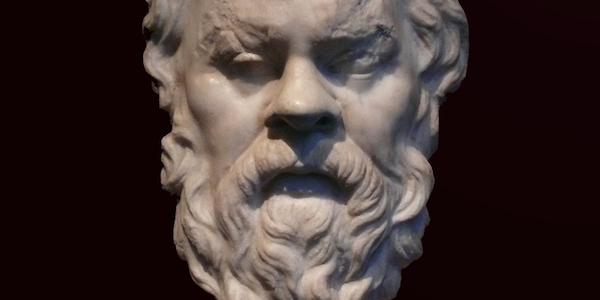 Philosophers disagree about how to define philosophy. Is it a turn of mind, a professional field, a set of subject areas, or what? I have an opinion about this, which I will not defend here. Still, when I teach an introductory philosophy course, I must give a course description in the syllabus. So I put down something like this:
Philosophers disagree about how to define philosophy. Is it a turn of mind, a professional field, a set of subject areas, or what? I have an opinion about this, which I will not defend here. Still, when I teach an introductory philosophy course, I must give a course description in the syllabus. So I put down something like this:
Philosophy means “love of wisdom.” Perhaps a simple, working definition of philosophy is “critical thinking—often abstract—about any important things.” The author of our textbook says that philosophy is “a style of life, a life of ideas or the life of reason”. So philosophy involves (is?) the practice of giving good reasons for beliefs. Philosophical techniques can be applied to better understand (and possibly answer) any meaningful question. Thus, to the degree that rational people think carefully about giving reasons for their positions, they all philosophize.
While there are many different conceptions of philosophy, one aspect generally holds true across the board: Philosophy involves questioning propositions to see if there are good reasons to support them. Thus, philosophy has become a discipline organized around (or supported by) our natural rationality. Socrates is a key figure in philosophy because he exemplified inquisitiveness, persistence in critical argument, and demand for clearly defined terms. He made some people uncomfortable because he challenged their unquestioningly accepted beliefs.
I sometimes have lunch with a friend who is a philosopher and is also religious (these two qualities once came together more frequently than they now do). Call him Bill. At one of our lunches the conversation came around to the fact that religion involves tradition. (It is certain that almost every aspect of social life involves tradition, and religion in particular is organized around traditions which may or may not be good [2 Thessalonians 3:6].) Bill observed that his faith has its traditions and that my faith has mine, and said that he was sure both faiths were good and valid.
I had already told Bill what troubled me about his religion, and that was precisely this: As Bill admitted, his religion promotes traditions that are unauthorized in the New Testament. Since I believe the New Testament to be the word of God, if I were asked to follow a tradition that was unauthorized by the New Testament, then I would have to follow the New Testament and leave the tradition.
We said a lot of things in our conversation on this subject, but we kept coming back to the point that if the New Testament is God’s communication to man (and Bill did not question that it is), then it cannot be God’s will that we follow traditions that are unauthorized by the New Testament. One of the things Bill said about my problem with his religion’s traditions was this: “I’ve been taught not to question those things.”
Taught not to question those things? My immediate response was, “Does that bother you, as a philosopher? Because that would bother me.” If to be rational is to be characterized by the pursuit of believing only that for which there is good evidence, then to be irrational is to be characterized by the pursuit of believing that for which there is weak or no evidence. Why, when it comes to the most important matters—about whether there is an Almighty Judge of the Universe and what He may expect of us—would ordinarily rational folks suddenly become irrational? There are reasons for such a turn in intellectual history, but no reasons that make the turn responsible.
I generally dislike being told not to question propositions. The reason I love Socrates is not because I think Socrates held a high number of true beliefs, but because I can identify with his urge to question propositions. And one of the main reasons I love New Testament Christianity is that it invites my Socratic scrutiny and has always vindicated itself (see 1 Peter 3:15).